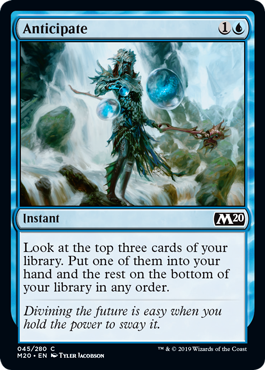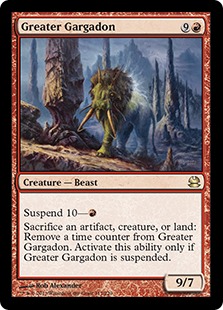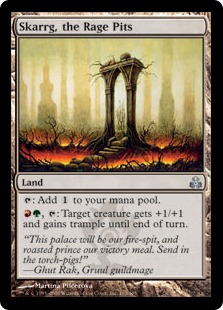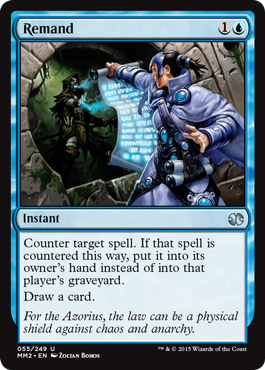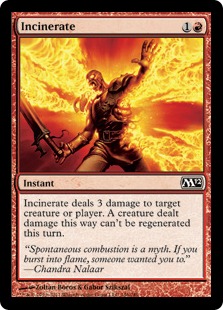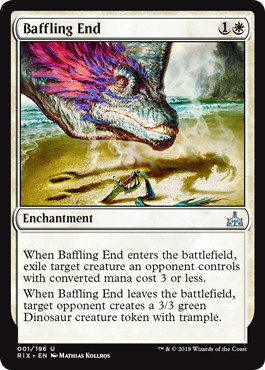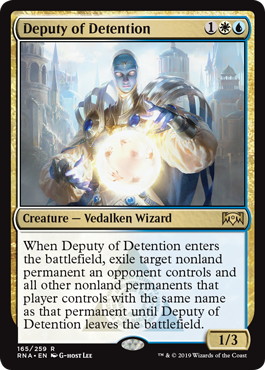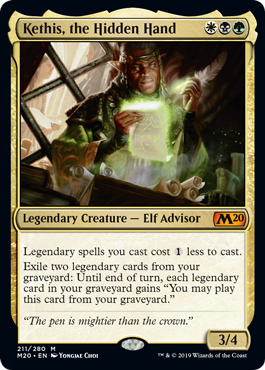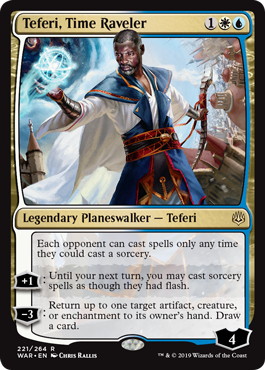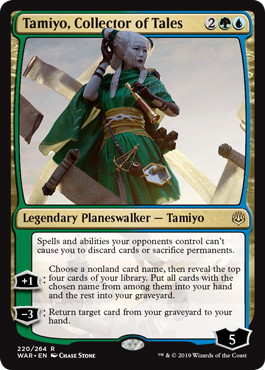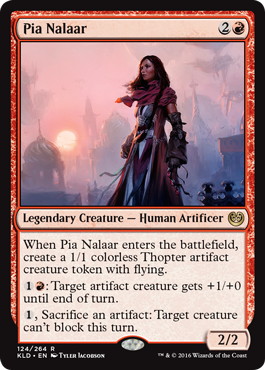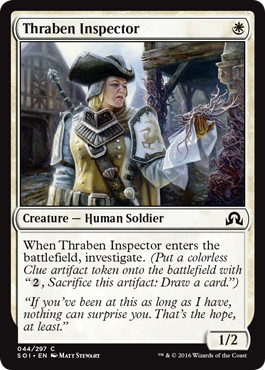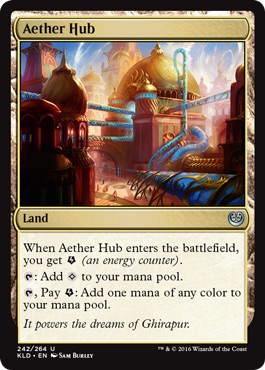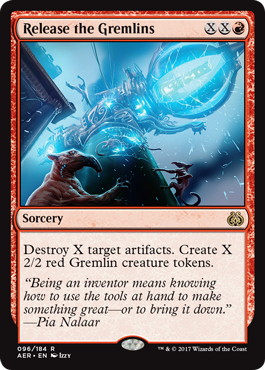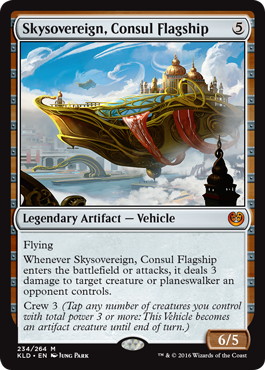Introduction
Underestimating your opposition is never a good move in life or in magic. When your opponent plays cards carelessly or keeps seemingly inexplicable hands, consider that this might not be a simple mistake and try to use the information in your favor.
In Constructed, some matchups can play out like a scripted pattern. This has been aggravated with the introduction of London Mulligan rules (players rarely keep a bad hand) and the adoption of open decklists even during swiss rounds (players can anticipate exactly what they need to be doing in the first game of a match, while also being aware of important sideboard tech).
There are a lot of repercussions from those changes that the magic world hasn’t fully grasped, from deck building and sideboarding to deck selection.
An aspect that is rarely talked about is how they can also affect your ability to anticipate what cards your opponent might have in hand. This is because some cards have very specific roles in certain matchups, and you can deduce a lot about your opponents hand based on when they play critical cards and when they don’t.
I want to cover a couple of tips that can be helpful in giving you better odds at guessing what cards your opponent could be hiding, in the form of questions you should ask yourselves when weird things happen. The tips to reading your opponents are not related to body language or anything like that. They are about the game itself and, as you’ll see, they require a deep understanding on how to play both sides of a matchup. Another example in how hard work can help you succeed at competitive magic.
All the examples I’ll talk about happened in the final match of a tournament, which adds a more dramatic effect – they really were the difference makers in getting a trophy or going home feeling like Marcio Carvalho.
1. Why Did They Play That Critical Card so Carelessly?
Sample #1: RG Aggro versus Angel Flare (from 2007)
This is my favorite play of all time and if you were to guess this whole article is just an excuse to brag about it, you wouldn’t be entirely wrong. Brazilian Nationals, 2007, finals. Open decklists.
I am playing a RG aggro deck designed by Tomoharu Saito and my opponent is playing a Angel Flare midrange deck which I first saw being popularized by Kenji Tsumura.
- Lucas Berthoud
- – RG Aggro
- Brazilian Nationals 2007
1 《Forest》
4 《Stomping Ground》
4 《Karplusan Forest》
2 《Gruul Turf》
3 《Treetop Village》
2 《Pendelhaven》
2 《Skarrg, the Rage Pits》
-Land (25)- 3 《Mogg Fanatic》
4 《Mogg War Marshal》
4 《Tarmogoyf》
4 《Siege-Gang Commander》
4 《Greater Gargadon》
-Creature (19)-
4 《Cryoclasm》
3 《Ancient Grudge》
2 《Rumbling Slum》
2 《Dead/Gone》
-Sideboard (15)-
- Angel Flare
- Brazilian Nationals 2007
1 《Plains》
4 《Sacred Foundry》
3 《Steam Vents》
2 《Hallowed Fountain》
2 《Shivan Reef》
1 《Adarkar Wastes》
1 《Battlefield Forge》
1 《Nimbus Maze》
1 《Azorius Chancery》
1 《Izzet Boilerworks》
3 《Flagstones of Trokair》
1 《Urza’s Factory》
-Land (23)- 4 《Court Hussar》
4 《Lightning Angel》
1 《Aeon Chronicler》
2 《Firemane Angel》
-Creature (11)-
4 《Lightning Helix》
4 《Remand》
4 《Compulsive Research》
4 《Wrath of God》
1 《Sacred Mesa》
1 《Faith’s Fetters》
4 《Azorius Signet》
2 《Boros Signet》
-Spell (26)-
2 《Detritivore》
2 《Pyroclasm》
2 《Faith’s Fetters》
2 《Teferi’s Moat》
2 《Tormod’s Crypt》
1 《Return to Dust》
-Sideboard (15)-
The way the matchup played out was that RG was good at dealing the first points of damage, but the UWR deck could stabilize later behind blockers and life gain cards.
The only out RG had for winning in the late game was the combo of 《Greater Gargadon》 plus 《Skarrg, the Rage Pits》, creating a haste and trample attacker, which was particularly effective because UWR removal was all sorcery speed. Except for a critical card: 《Remand》.
A remanded Gargadon was effectively the same as a hard counter because of how long it would take to come into play again through Suspend, and UWR could usually finish the game during that timing.
Because of this, it would make sense for the UWR player to save the 《Remand》 in hand and only play it earlier if it is necessary. Playing this way would make UWR a significant favorite in the matchup.
During that game, however, my opponent had cast a 《Remand》 very early, in a spot where he wasn’t particularly being pressured and where the timing didn’t really buy him any relevant extra time. I also noticed that he didn’t miss land drops after that and didn’t lack spells to cast either. If the 《Remand》 wasn’t played to develop his board, then why did he cast it so soon?
This really bothered me at the time, because I knew my opponent was a strong player that was familiarized with the matchup. Could it be a mistake? If it was a mistake, the right play for me would be cast a Gargadon as soon as possible, before my opponent had the chance to draw an additional 《Remand》.
But all sorts of alarm bells were going in my head, followed by a moment of clarity. I realized that the reason he played the 《Remand》 so carelessly was because he very likely had a second copy in hand. If this was true, my optimal play would be to do the opposite, that is, delay the Gargadon.
From that point, my main plan became devising a way to force the theoretical second 《Remand》 from my opponents’ hand. When I drew a Gargadon, I didn’t Suspend it right away because I saw a window of opportunity.
Here is how it played out: I played a land and some spells in my first mainphase, tapping low. I then attacked and used an 《Incinerate》 to finish off a blocker, leaving only a single 《Mountain》 untapped. Basically, I was trying to create a perfect opportunity for my opponent to use the 《Remand》 for value, if he had it. My opponent thought long and hard about it, and finally decided to 《Remand》 the 《Incinerate》.
I then used my 《Mountain》 to Suspend Gargadon and killed him with it a turn later.
The funny part here is that if my opponent didn’t cast the first 《Remand》, I would strongly consider the possibility that he might not have drawn it at all, and I’d risk Suspending the Gargadon earlier. But because he played it soon, I’d give him higher odds of having the second copy in hand then none left.
What is really fascinating about situations like this are the implications it has for mind games. If you are the player with the two 《Remand》s in hand, should you be extra careful not to use even the first copy so as not to tip off your opponent? If you do use it, should you be looking to miss a land drop on purpose to make it seem like it was a forced play to dig for lands? If you are the Gargadon player, what are the odds you attribute to your opponent simply having made a mistake earlier?
The lesson here is that whenever your opponent plays a critical card at a weird time, they probably could have a second copy of it in hand. The odds for this being true increases if you can rule out other reasons they could have played the card, so you need to be on the lookout for that.
When that critical card is a removal or a counterspell, maybe they used it early to deal with pressure, so you need to measure how much pressure they were suffering. This is very useful in Limited too when you consider your opponents using unconditional removal early in the game instead of saving it for a later bomb.
When the critical card is a threat, you need to evaluate if they cast it early to use their mana efficiently, so you need to note what spells he cast earlier and later and gauge their mana usage.
2. Why Did They Keep Their Hand?
Sample #2: Kethis Combo versus Scapeshift Combo (from 2019)
- Stanislav Cifka
- – Kethis Combo
- (Sample List for Reference)
4 《Watery Grave》
3 《Hallowed Fountain》
2 《Temple Garden》
1 《Godless Shrine》
3 《Glacial Fortress》
1 《Drowned Catacomb》
3 《Temple of Malady》
3 《Temple of Silence》
1 《Temple of Mystery》
-Land (25)- 4 《Diligent Excavator》
4 《Fblthp, the Lost》
4 《Lazav, the Multifarious》
4 《Kethis, the Hidden Hand》
-Creature (16)-
4 《Oath of Kaya》
4 《Mox Amber》
4 《Teferi, Time Raveler》
2 《Ashiok, Dream Render》
3 《Tamiyo, Collector of Tales》
-Spell (19)-
- Sebastian Pozzo
- – Bant Scapeshift Combo
- (Sample List for Reference)
2 《Island》
1 《Plains》
2 《Breeding Pool》
2 《Hallowed Fountain》
2 《Temple Garden》
1 《Glacial Fortress》
1 《Hinterland Harbor》
1 《Sunpetal Grove》
1 《Azorius Guildgate》
1 《Selesnya Guildgate》
1 《Simic Guildgate》
1 《Blossoming Sands》
1 《Thornwood Falls》
1 《Tranquil Cove》
2 《Temple of Mystery》
1 《Memorial to Genius》
4 《Field of the Dead》
1 《Blast Zone》
1 《Field of Ruin》
-Land (29)- 2 《Arboreal Grazer》
4 《Hydroid Krasis》
4 《Elvish Rejuvenator》
1 《Deputy of Detention》
-Creature (11)-
2 《Grow from the Ashes》
4 《Circuitous Route》
4 《Scapeshift》
2 《Time Wipe》
4 《Teferi, Time Raveler》
-Spell (20)-
2 《Deputy of Detention》
2 《Agent of Treachery》
2 《Veil of Summer》
2 《Aether Gust》
2 《Teferi, Hero of Dominaria》
1 《Dovin’s Veto》
-Sideboard (15)-
With London Mulligan, good players rarely keep mediocre 7-card hands.
This example is from a finals in 2019. The matchup is Kethis Combo versus Scapeshift. Most players at the time believed Kethis to have the advantage. In fact, the average Kethis hand would crush the average Scapeshift hand. However, players experienced with the matchup knew that Scapeshift could win sideboarded games under two very specific circumstances: they either would have a very fast hand with multiple ramp spells and a 《Scapeshift》, or they would draw 《Baffling End》 and 《Deputy of Detention》 to delay the Kethis player from going off early. Keep all of this in mind.
During game 3, the Scapeshift player kept a 7-card hand, but didn’t play any ramp spells in the first four turns of the game. The Kethis Combo player had a great hand but had to make a difficult decision about which cards to play.
Should they cast their copy of 《Kethis, the Hidden Hand》 early and try to combo as soon as possible, or should they cast planeswalkers and plan for a longer game, saving 《Kethis, the Hidden Hand》 only for the turn they would go off?
I think the Kethis Combo player instincts here were to try to capitalize on the lack of acceleration and to close the game fast. This is generally the correct play in most matchups (that is, if your opponent lacks early plays it’s likely they’ll start playing strong spells their lands come online, so you try to kill them earlier). In fact, it would be the correct play for game 1 scenarios or if the Scapeshift player had mulliganed, to play around a topdecked 《Circuitous Route》. But after sideboard, and after Scapeshift player kept a 7-card hand? I believe it was a mistake.
Like I said above, based on playtesting experience, Scapeshift could only win in two specific ways. If they weren’t ramping early, this should be a strong signal that their hand was full of creature removal. Otherwise, they would probably have mulliganed.
What happened is that a 《Kethis, the Hidden Hand》 was cast and it was promptly removed. I believe a second creature was played and removed. The Kethis player then struggled to find ways to combo before the Scapeshift player. If instead of casting 《Kethis, the Hidden Hand》 they had added planeswalkers to the board, that would mean extra activations available and extra cards to look at, and after that maybe the Kethis Combo player could have ended in a position to go off during a single turn, without being exposed to sorcery speed removal. Maybe they’d find 《Assassin’s Trophy》 for the 《Deputy of Detention》. Maybe they’d bait a 《Deputy of Detention》 targeting the planeswalker instead of the 《Kethis, the Hidden Hand》.
The lesson here is that in the world with London Mulligan, a 7-card hand should be a strong signal that your opponent has something very good going. Your job is to react accordingly. This will be more likely to be true in polarized matchups, where one deck is pigeonholed into playing one or two specific ways, like in the example above. This will be less likely to be correct in matchups that are about attrition, full of interaction and discard spells, for instance. In those cases, the need for card advantage could be enough explanation for the lack of mulligans.
Sample #3: Mardu Vehicles Mirror (from 2017)
- Lucas Berthoud
- – Mardu Vehicles
- Pro Tour Aether Revolt
- (Champion)
3 《Plains》
1 《Smoldering Marsh》
4 《Concealed Courtyard》
4 《Inspiring Vantage》
1 《Foreboding Ruins》
1 《Needle Spires》
4 《Spire of Industry》
2 《Aether Hub》
-Land (23)- 4 《Thraben Inspector》
4 《Toolcraft Exemplar》
3 《Inventor’s Apprentice》
4 《Scrapheap Scrounger》
4 《Veteran Motorist》
2 《Pia Nalaar》
1 《Thalia, Heretic Cathar》
-Creature (22)-
4 《Unlicensed Disintegration》
4 《Heart of Kiran》
2 《Aethersphere Harvester》
3 《Gideon, Ally of Zendikar》
-Spell (15)-
- Marcio Carvalho
- – Mardu Vehicles
- Pro Tour Aether Revolt
- (Finalist)
3 《Mountain》
4 《Concealed Courtyard》
4 《Inspiring Vantage》
1 《Foreboding Ruins》
1 《Needle Spires》
4 《Spire of Industry》
2 《Aether Hub》
-Land (23)- 4 《Thraben Inspector》
4 《Toolcraft Exemplar》
2 《Inventor’s Apprentice》
4 《Scrapheap Scrounger》
4 《Veteran Motorist》
2 《Pia Nalaar》
2 《Thalia, Heretic Cathar》
-Creature (22)-
4 《Unlicensed Disintegration》
4 《Heart of Kiran》
1 《Aethersphere Harvester》
3 《Gideon, Ally of Zendikar》
-Spell (15)-
2 《Release the Gremlins》
2 《Fumigate》
2 《Chandra, Torch of Defiance》
1 《Needle Spires》
1 《Archangel Avacyn》
1 《Fatal Push》
1 《Fragmentize》
1 《Shock》
1 《Skywhaler’s Shot》
1 《Skysovereign, Consul Flagship》
-Sideboard (15)-
Last example, another final: Game 5 of Pro Tour Aether Revolt.
My opponent was Marcio Carvalho, who already mulliganed, so making decisions based on hand strength wasn’t a strong signal, but it was still a signal because it was often correct to go to 5-cards in the matchup when needed. To be honest, we weren’t even at London Mulligan rules at that point. But considering I started the article by talking about a play I made during Nationals in 2007 would you really think I’d miss an opportunity to talk about the Pro Tour finals? You should know me better at this point.
The way the game played out was that Marcio played some average cards like 《Pia Nalaar》 and 《Thraben Inspector》, but critically he didn’t make the stronger plays in the matchup such as 《Heart of Kiran》 or another two-drop, or a turn 4 《Gideon, Ally of Zendikar》 or a quick 《Release the Gremlins》 for my 《Heart of Kiran》. I also noticed his only of black mana was 《Aether Hub》. I then wondered what other cards he could have had in hand to justify his keep.
Based in all of this, I made a critical decision. I could cast a 《Release the Gremlins》 early to clear a Thopter token and attack with my 《Veteran Motorist》 or deny him a chump block. This would create a lot of pressure and as tempo play in a matchup that was often decided around strong tempo plays. But I realized I could still lose to his 1 copy 《Skysovereign, Consul Flagship》.
How likely would it be for him to have a Skysovereign at this point? If we went purely by math in abstract, not very high. But what if we considered all the factors above that the rest of the cards he played that game were below average for the matchup? I thought it would be way more likely for him to have Skysovereign as a reason to keep his hand, and this reinforced my decision to not cast 《Release the Gremlins》. A turn later he did cast Skysovereign, gremlins were released, and the turn after he conceded.
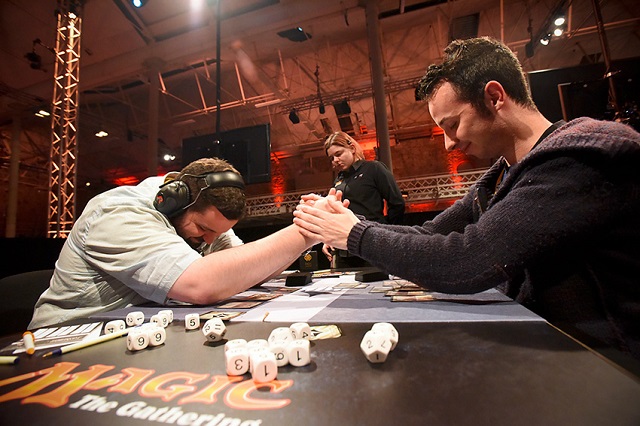
(Image Copyright: MAGIC: THE GATHERING)
Truthfully, based on the cards we each had in hand, I was a favorite to win that game anyways. My role at that point was not to lose it. So, I am glad I avoided a potential mistake, and thinking about the reasons why my opponent kept his hand helped me guide there.
Thank you for reading,



